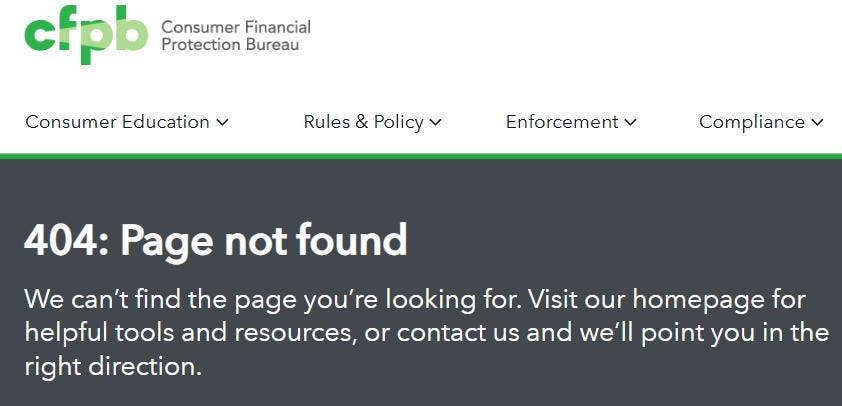Money
Can You Get Student Loan Forgiveness For Department Of Education Disruptions?

Turmoil at the U.S. Department of Education: What Borrowers Need to Know
Introduction: The Department of Education in Crisis
The U.S. Department of Education is currently embroiled in significant turmoil as the Trump administration pursues actions to undermine and potentially eliminate the department. This upheaval has raised concerns among millions of student loan borrowers, particularly those seeking student loan forgiveness. The situation has been further complicated by the involvement of the Department of Government Efficiency (DOGE), led by Elon Musk, which gained access to sensitive data systems within the Department of Education. This access includes personal identifying information of millions of federal student loan borrowers and aid recipients. In response to a DOGE review, the department has already canceled nearly $900 million in contracts, with more cuts anticipated. President Trump is expected to announce an executive order later this month that would call for the reduction and eventual elimination of the Department of Education. These developments have sparked widespread speculation, particularly on social media platforms like TikTok, that the chaos at the Department of Education could provide grounds for borrowers to seek or receive student loan forgiveness. However, this is not the case. Borrowers need to understand the facts and separate rumor from reality.
Data Exposure and FERPA: No Basis for Student Loan Forgiveness
One of the most prevalent rumors circulating online is that the Department of Government Efficiency’s (DOGE) access to the Department of Education’s data systems constitutes a violation of the Family Educational Rights and Privacy Act (FERPA), potentially providing a basis for borrowers to request or receive student loan forgiveness. Some influencers on social media have even suggested that borrowers could submit disputes to their loan servicers or file lawsuits against the Department of Education based on this alleged violation. However, this claim is entirely unfounded.
FERPA, a federal law enacted in 1974, is designed to protect the exposure of personally identifiable information in a student’s education record, such as Social Security numbers and dates of birth. The law permits the disclosure of FERPA-protected data only under limited circumstances. Importantly, a FERPA violation does not provide a basis for student loan forgiveness. The law does not include a “private right of action,” meaning individual borrowers do not have the legal standing to file a lawsuit solely due to a FERPA violation. Additionally, student loan forgiveness is not a remedy for any FERPA violation, nor does a violation invalidate a borrower’s student debt or their associated obligations.
This legal precedent was firmly established in the 2002 Supreme Court case Gonzaga University v. Doe, which ruled that individuals cannot file lawsuits to seek remedies for FERPA violations. As the court stated, FERPA’s nondisclosure provisions are focused on the aggregate level and primarily serve to guide the Secretary of Education’s distribution of public funds to educational institutions. Therefore, borrowers’ only recourse under FERPA would be to file an administrative complaint with the Department of Education. However, given that the Trump administration authorized DOGE’s access to the sensitive data, such complaints are unlikely to yield meaningful results.
Lawsuit Filed Over DOGE’s Access to Sensitive Student Loan Data
Last week, the University of California Student Association filed a lawsuit against the Education Department to halt DOGE’s access to sensitive student loan borrower data files. The lawsuit accuses the Department of Education of violating federal privacy laws by granting DOGE-affiliated individuals access to internal systems housing federal student financial aid information. According to the complaint, this intrusion represents an unprecedented violation of privacy, as the data of over 42 million individuals is at risk, including not only borrowers but also their parents and/or spouses. The lawsuit seeks injunctive relief under the Privacy Act and the Internal Revenue Code, aiming to block the Department of Education from allowing DOGE continued access to these systems. However, it is important to note that the lawsuit does not seek student loan forgiveness for any borrowers, as this is not an available remedy for such violations.
While the lawsuit highlights the serious privacy concerns surrounding DOGE’s access to sensitive data, it does not provide a pathway for borrowers to have their loans forgiven. Borrowers should remain cautious of misinformation circulating online and avoid taking unnecessary actions based on unverified claims.
Shutdown of the Department of Education: No Automatic Loan Forgiveness
Another rumor gaining traction online suggests that if President Trump shuts down the Department of Education, borrowers’ student loan obligations will disappear, and they may even be entitled to student loan forgiveness. This claim is entirely false. First and foremost, the Department of Education can only be eliminated by an act of Congress. While Republican lawmakers have introduced legislation aimed at abolishing the department, such a move is unlikely to pass in the current political climate, as it would require Democrat support in the Senate to overcome a filibuster. Advocacy groups have also vowed to challenge any attempt by the Trump administration to eliminate the department through executive action.
Even if the Department of Education were to be shut down, the federal student loan system would not disappear. Instead, its functions would likely be absorbed by other federal agencies. For example, a bill introduced by Republican lawmakers last year proposed moving the Office of Federal Student Aid, which administers the federal student loan system, to the Department of Treasury. Regardless of where the federal student loan system ends up, borrowers would likely face significant disruptions to repayment and federal aid programs. However, these disruptions would not absolve borrowers of their repayment obligations or entitle them to student loan forgiveness.
“Student loans will not go away if the Department goes away,” the Student Debt Crisis Center emphasized in a recent email to borrowers. While the organization acknowledges that a Department of Education shutdown would harm borrowers further, it also makes clear that borrowers would still be required to repay their loans.
Threats to Existing Student Loan Forgiveness Programs
For now, borrowers still have access to most federal student loan forgiveness programs, including Public Service Loan Forgiveness (PSLF) and Income-Based Repayment (IBR). However, these programs are under threat as Republican lawmakers consider actions to limit or repeal federal student loan forgiveness programs. These changes are being proposed to offset the costs associated with extending tax cuts. Potential reforms could include the repeal of the SAVE plan and the elimination of time-based student loan forgiveness associated with Income-Driven Repayment (IDR) plans. Additionally, lawmakers may seek to alter or eliminate other federal student loan forgiveness and relief programs expanded by the Biden administration, such as Borrower Defense to Repayment.
Borrowers should remain vigilant and monitor developments in this area. While these programs remain available for the time being, their future is uncertain. Advocacy groups and borrowers alike are encouraged to engage with policymakers to protect and expand access to student loan forgiveness programs.
Conclusion: Separating Fact from Fiction for Borrowers
The current turmoil at the U.S. Department of Education has created a climate of uncertainty and confusion for millions of student loan borrowers. While online rumors suggest that the upheaval may provide opportunities for student loan forgiveness, these claims are unfounded and misleading. Borrowers should be aware that neither the exposure of sensitive data under FERPA nor the potential shutdown of the Department of Education provides a basis for automatic loan forgiveness.
To navigate this challenging landscape, borrowers must stay informed and avoid taking actions based on unverified claims. They should continue to monitor their loan accounts, communicate with their servicers, and explore legitimate pathways to student loan forgiveness through existing federal programs. Advocacy groups and policymakers must also work together to ensure that borrowers’ rights are protected and that the federal student loan system remains fair and equitable for all.
-

 Money3 days ago
Money3 days agoConsumer Financial Protection Bureau Adds Error Message To Home Page
-

 Money2 days ago
Money2 days agoWinning Content Strategies For Wealth Managers
-

 Australia1 day ago
Australia1 day agoTropical Cyclone Zelia intensifies to category 2 storm
-

 Asia1 day ago
Asia1 day agoWhat you need to know about 2024 YR4, the asteroid that could hit Earth in about eight years’ time
-

 Entertainment22 hours ago
Entertainment22 hours agoPrince Harry and Meghan Markle’s Best Moments and Photos From the 2025 Invictus Games
-

 Australia17 hours ago
Australia17 hours agoTropical Cyclone Zelia intensifies to category five system off Pilbara coast
-

 Politics1 day ago
Politics1 day agoDozens of religious groups sue to stop Trump admin from arresting migrants in places of worship
-

 Entertainment3 days ago
Entertainment3 days agoEvery Celebrity Who Attended the 2025 Super Bowl: A Guide to the A-Listers at the Big Game


















